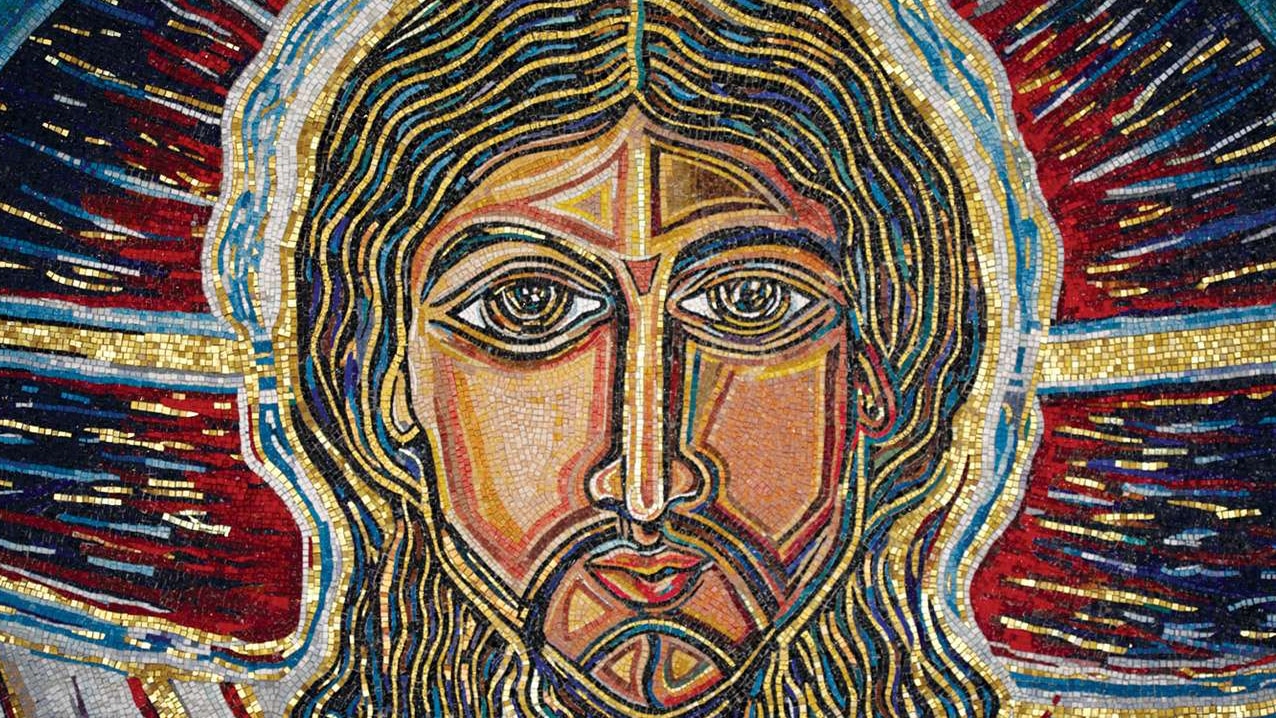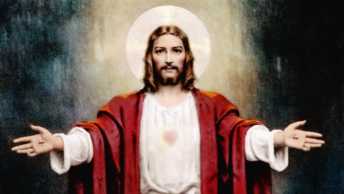The most vital question facing humanity has implications for healthcare, politics, education, business, technology, and every human field. The question is this: who is the human person? If we do not answer this question truthfully, all of society, whose purpose is to serve the good of every single person, will be compromised by an inadequate anthropology of the human person.
Now the answer to this question is fully revealed in the person of Jesus Christ, the only human person who is also divine, the Second Person of the Blessed Trinity who became man to redeem every single human person who ever did, ever does, and ever will exist. In particular, Jesus Christ revealed that man was made in the image and likeness of God [1], that the human person is the only creature that God willed for his or her own sake. [2] To be sure, that image and likeness was distorted by sin [3], but God decided that the human person was worth becoming man in the person of Jesus Christ and living as a person for thirty three years, sharing in the full breadth of what it means to be human, suffering and dying on a cross, and then rising to eternal life, taking human nature into heaven. [4] Consequently, the human person is not only made in the image and likeness of God, but redeemed by God Himself who loved men enough to become one of them and enable each person to share in the very life of the Triune God as children of God the Father [5], co-heirs with Christ [6], and temples of the Holy Spirit. [7] In short, Jesus Christ reveals the human person’s vocation to subject all things to Christ in heaven and on earth [8], his exalted dignity as the representative of God on earth [9], and the very meaning of human life, which is to participate in the eternal life of God Himself. It is impossible to understand the vocation, the dignity, and the meaning of human life without reference to Christ who by His incarnation united Himself with every person. [10] What this means is that secular humanism, the notion that we can structure a society that promotes the good of the human person without God, is a total lie. The destiny of man is inseparable from God His Creator and Redeemer.
Now just as the human person is incomprehensible without Christ, so too is healthcare serving the human person incomprehensible without Christ. We cannot have a person, patient centered healthcare system that systematically excludes Christ. Nor can we have a person, student centered educational system that excludes Christ. Nor can we have a person, customer centered business culture that excludes Christ. This does not, of course, mean that every hospital, school, and business must be Catholic or even Christian, but it does mean that the freedom to pursue Christ must be preserved in every hospital, every school, and every business because pursuing Christ is the appropriate end of what it means to be a human person. The alternative is tell physicians and patients that they cannot seek fulfillment as a person, to tell teachers, principals, and school children that they cannot seek fulfillment as a person, and to tell business owners, operators, and customers that they cannot seek fulfillment as a person. This manifest absurdity is nothing more than the logical conclusion of systemically excluding Jesus Christ from the public sphere, which is difficult to accept even from a human point of view. [11]
In the field of healthcare, authentic humanism requires that patients and their families are the focal point of healthcare. The healthcare delivery system can either treat the patient and their family as the end of healthcare in recognition of their intrinsic dignity, or they can treat the person as a means to another end, which is a fundamental rejection of the dignity proper to the human person. The latter is the healthcare system we currently have in the United States. It is a healthcare system that is centered on insurance companies and profit, and not the patient. This does not even require any citations of authority because for anyone who knows anything about the practice of healthcare in this country, this is the reality. Patients are told which medical professionals to see, how much time to spend with these professionals, what medical procedures they can receive and not receive, and a host of other things that would be decided by the patient him or herself in consultation with their family and their physician in a patient or person centered healthcare system. These important decisions are rolled into the terms of the insurance contract. Conversely, physicians are not generally free to treat patients with the respect and dignity they deserve because they must comply with insurance regulations that often have little or nothing to do with the authentic good of their patients. Furthermore, every patient should be able to encounter Christ in their healthcare if they so choose because that is what it means to have authentically human healthcare. Patients cannot encounter Christ if they are not free to self-direct their own healthcare, and if medical personnel are not open to dialoguing with their patients about their faith in Christ. Again, this does not mean that every doctor must be Catholic or an expert in theology, but only that they should be open to loving and treating the whole person, which includes an openness to Christ, the principle source [12] and ultimate end of every person.
In the field of education, authentic humanism requires that students and their parents are the focal point of education. To this end, teachers must be free to teach the children in their class the full truth about the human person. This is impossible if the laws prevent teachers from teaching about the person of Jesus Christ, since He is the one who unlocks the vocation of the human person, the dignity of the human person, the meaning of human life, and the destiny of every person. Again, this does not mean that every teacher must be a faithful Catholic or other Christian who desires to evangelize their classroom, but only that there is an openness to discussing Christ because it is impossible to teach truth without reference to The Truth. [13] Conversely, students must be free to learn the truth about what it means to be a human person, which means they should be free to explore the person of Jesus Christ who reveals the truth about the human person. In truth, the First Amendment has been hijacked by an activist United States Supreme Court to subvert the free exercise of religion in public schools by an overly broad, historically inaccurate, strict separation understanding of the Establishment Clause which was intended to prevent the State from declaring an official state religion, not to marginalize and exclude people of faith from the public sphere. [14]
In the field of business, authentic humanism means that business owners and operators should conduct business in a fully human way that respects the dignity of the people they serve. They should never instrumentalize their customers and see them as strictly a means to profit. Profit should be an end of business but not the sole end. The other end is treating customers with the dignity they deserve. This ensures a fully human business that is truly serving the good of all people. But how can a business treat its customers with the dignity they deserve if they are not free to share their faith in Christ, the source of that dignity, or to live out their faith as a customer? They cannot. Conversely, business owners and operators should not be prevented from expressing their faith in Christ in the workplace; otherwise they would be forced to separate their faith and their work, which is a violation of what it means to be an integrated human person. Whether it is free-market company policies that insulate business from faith in Christ or more commonly, government overreach which prevents businesses from incorporating a faith dimension, the human person suffers.
Whether in healthcare, education, or business, people should be treated with the intrinsic dignity that is safeguarded by the redemption of all people in Christ. When we exclude Christ from any sector of society, people will inevitably suffer and society will be less human.
###
NOTES: [1] Genesis 1:26-28.; [2] Second Vatican Ecumenical Council, Pastoral Constitution on the Church in the Modern World, Gaudium et Spes, 24.; [3] Catechism of the Catholic Church, 386.; [4] The Apostles Creed.; [5] Gospel According to St. Matthew 6:9.; [6] Romans 8:17.; [7] 1 Corinthians 6:19.; [8] 1 Corinthians 15:27; Gospel According to St. Matthew 28:18-20.; [9] 2 Corinthians 5:20.; [10] Pope St. John Paul the Great, Encyclical Letter Redemptor Hominis [The Redeemer of Man], 8.2.; [11] “Even the phenomenon of unbelief, a-religiousness, and atheism, as a human phenomenon, is understood only in relation to the phenomenon of religion and faith. It is [,] difficult [,] even from a purely human point of view, to accept a position that gives only atheism the right of citizenship in public and social life, while believers are, as though by principle, barely tolerated or are treated as second-class citizens or are even—and this has already happened—entirely deprived of the rights of citizenship.” John Paul the Great, Encyclical Letter Redemptor Hominis, 17.8.; [12] Colossians 1:16.; [13] Gospel According to St. John, 14:6.; [14] Kenneth Klukowski, Restoring Religious Liberty by Restoring the Original Meaning of the Establishment Clause, https://www.heritage.org/courts/report/reclaiming-religious-liberty-restoring-the-original-meaning-the-establishment-clause (last visited 16 September 2019).









…”the only human person who is also divine.” – from the article. But can Jesus really be said to be a human person? I think not. He is entirely a Divine Person. Our human nature finds its true identity in Him. As St. Catherine of Sienna said in her “Dialogue of the Soul with God the Father” – he wishes to make of us another Himself. In other words, Jesus wishes to Divinize us by making us sharers of His Divinity.
Jesus is 2 natures: human and divine. So yes, he is a Divine person, but he does not cease to be human.
Yes! Jesus is the greatest humanist! How so many contemporaries are hostile to authentic humanism. They are missing the boat.